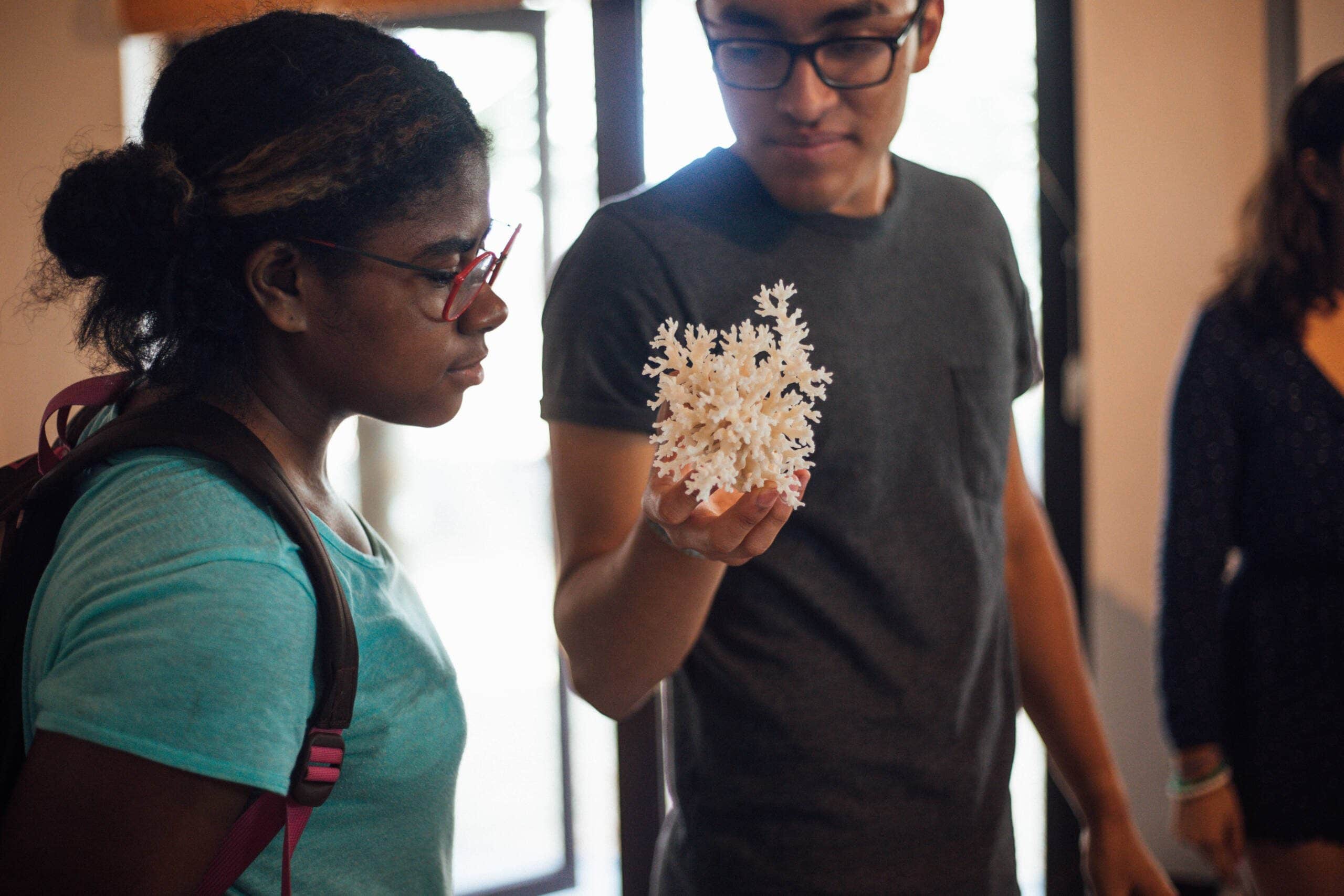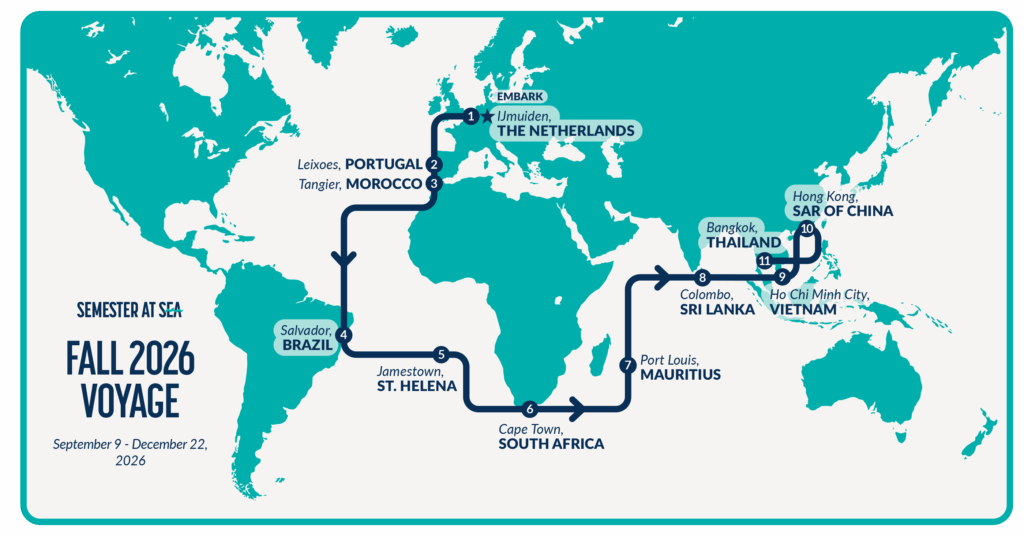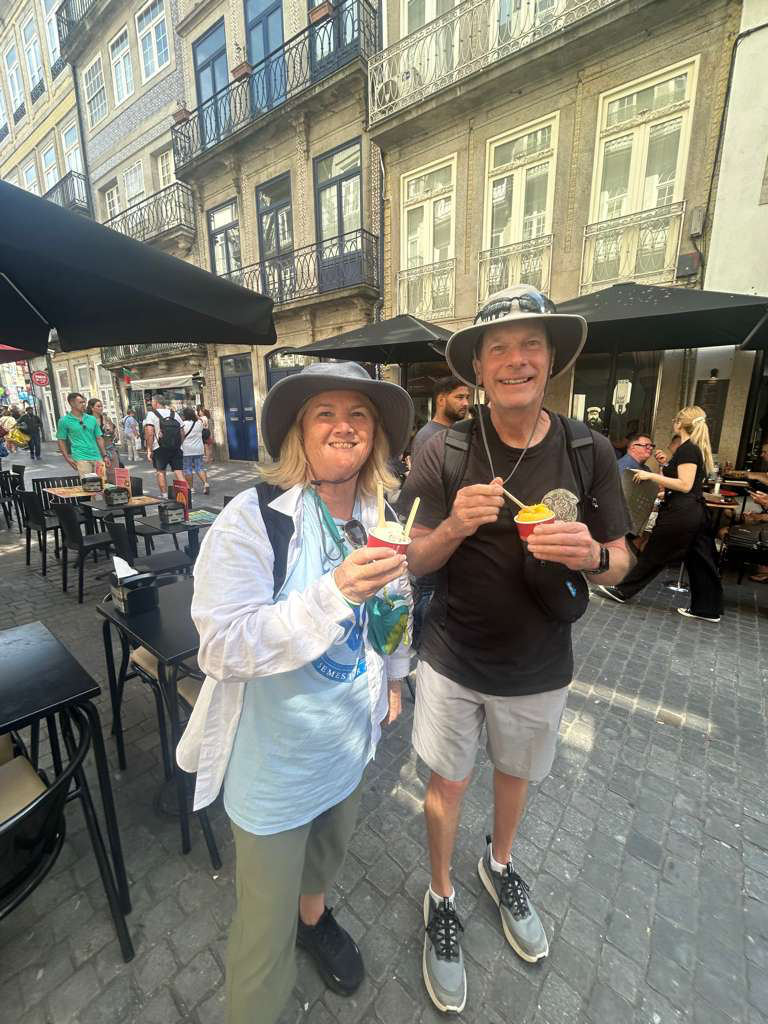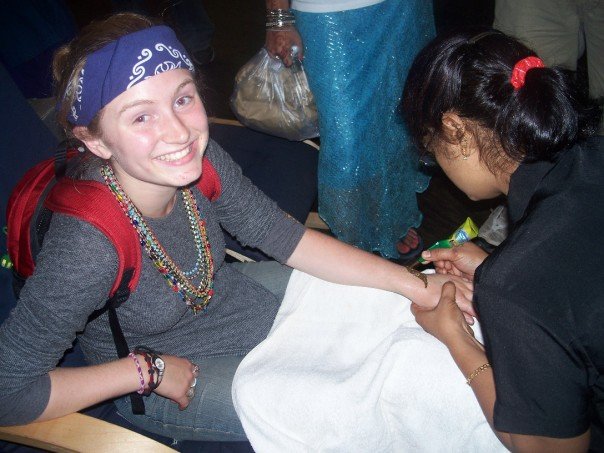During a quick stop in Mauritius, Voyagers had the opportunity to disembark and participate in various field programs and field classes while the MV World Odyssey refueled in port.
Of those programs was Coral Reef Conservation: Rainforests of the Ocean, led by Global Studies Director Edward Huijbens, a new sustainability field program aimed at educating participants about the human impact on coral reefs in Mauritius.
“I showed a video in Global Studies that shows the use of sunscreen, a fairly innocuous thing that we use to protect our skin,” said Huijbens, a geographer and professor of tourism at the University of Akureyri in Iceland. “But what many students may not understand is how sunscreen applied in California might be harming the coral reefs around Mauritius.”
Voyagers spent their day at a non-profit organization, Reef Conservation, that is dedicated to the conservation and the restoration of the coastal and marine environment of Mauritius. According to their website, coral reef degradation has been “chronic and intense,” due to uncontrolled coastal and industrial development, fishing with seine nets, tourism that promotes snorkeling, and dive boats dropping anchors and breaking the coral.
Understanding the human impact on Mauritius coral reefs
“Coral reefs are some of the most vibrant ecosystems that we have. Coral reef dying means that the fish will go, which means that some communities who depend on fish will lose their livelihood and have to relocate, and that’s just the socio-economic impact,” Huijbens said.
“If you have a vibrant ecosystem you have a resilient place — a place that is able to absorb and cope with change,” he added.

Voyagers rotated between three stations: one that showed how data is collected, one that showcased the wetlands and mangroves, and another that allowed voyagers to take a quick tour of the coral reefs via glass-bottom boats. Each station was meant to show the importance of both coastal and marine ecosystems and how they depend on each other.
“It’s natural for human beings to protect what they know,” said Flavio Joseph, who has been working and volunteering with Reef Conservation since 2015. “Sometimes, we can see people exhibiting invasive behavior or showing bad habits in their natural environments and we try to educate people so that they are aware that what they’re doing is dangerous. If they continue to do it, it’s because of their mentality or because they make that choice, but they can’t say they ‘didn’t know.’ ’’
A real-life example of that on-the-spot education occurred during one of the glass-boat tours, where a handful of voyagers and volunteers ran into a tour group of individuals snorkeling near the protected reef and touching the coral.
“Although it wasn’t great to see that happening, we got to see the interaction of the organization informing them about what they were doing and teaching them how they can protect the coral,” said Riley Moir, a student at Colorado State University studying Biomedical Sciences. “It was clear that some of [the tourists] were listening to what the guides had to say about it and actually engaged in the information.”
Despite living nowhere near an ocean, Moir is still passionate about ocean sustainability and is participating in three of the four conservation programs offered by Semester at Sea.
“I always had this interest in marine biology and marine conservation, but never had the opportunity to learn about it and get hands-on experience. I figured participating in these programs would be the best way to spend my time in the various countries we visit.”
Near the end of the tour, voyagers debriefed with the volunteers by asking if there was hope for their ongoing projects in conservation with a rise in tourism in the country. After various glances around the room, the answer was not as hopeful as many would have imagined.
“The coral reefs we are protecting are stable,” one volunteer chimed in. “But that will change if tourism increases.” A delicate balance for an island that relies on tourism for their economy.
But the conversation ended as a hopeful plea that voyagers take what they learned and share it with the rest of the world. Volunteers shared examples of how one person can be that change: by eliminating their use of plastic for a year would mean 365 fewer bottles in the ocean.
“I’m personally a firm believer in the importance of small steps. When you change the world, you take it one step at a time,” Huijbens said. “Now, the question of course is, do we have that time? How fast do we need to transform this change? And we are sort of running out of time.”



